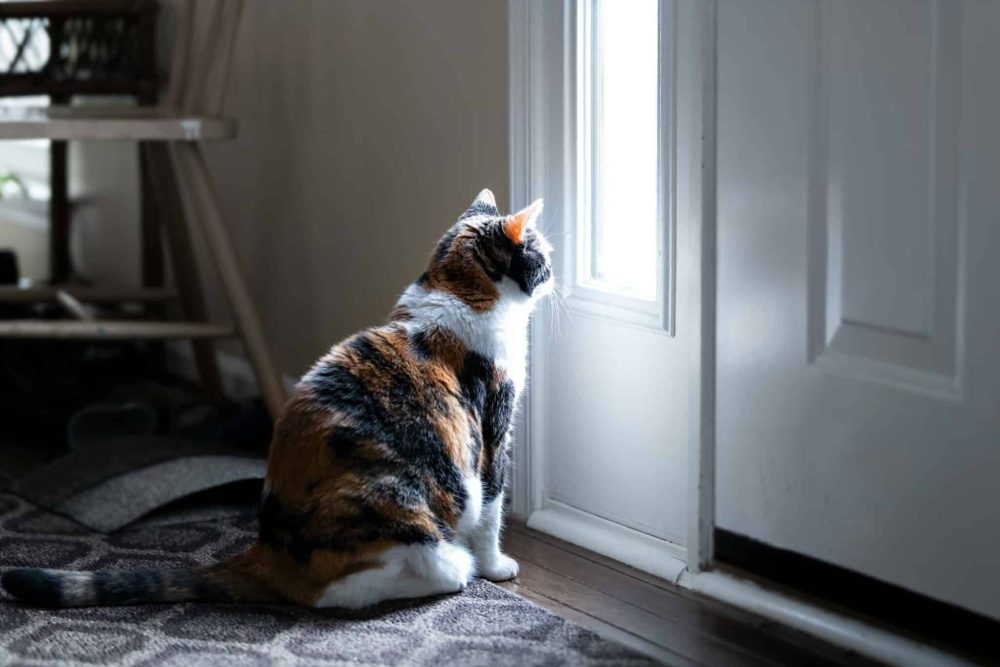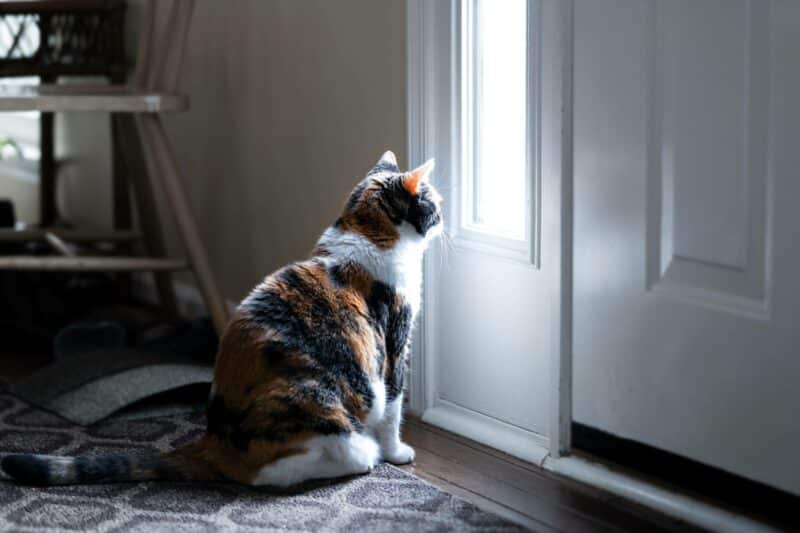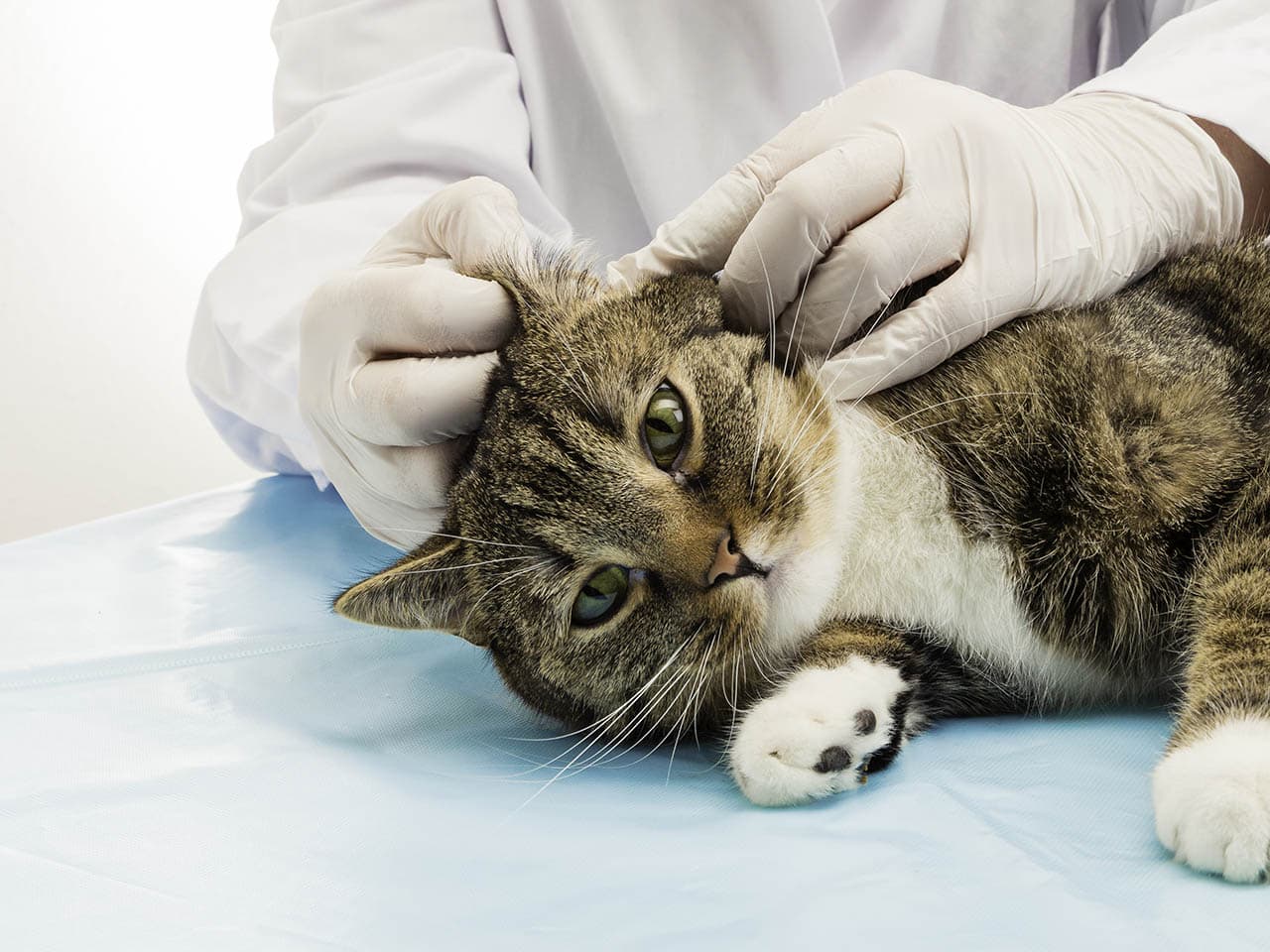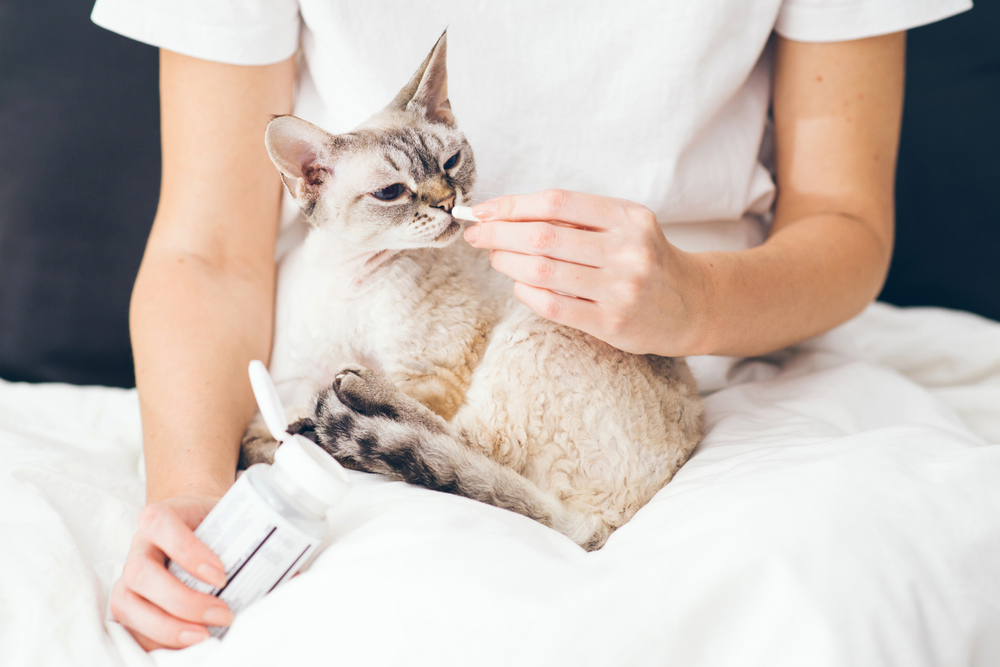As a cat owner, you’ve undoubtedly experienced escape attempts from your pet. Whether it’s trying to dart out the front door or attempting to get into a room in the house that is off-limits, cats are not shy about trying to break through door boundaries that are in place for their own safety and our comfort and/or convenience. There are many reasons for them doing so, such as wanting to explore and feeling the need to seek out nature.
Sometimes, cats will try to run through doorways out of curiosity, due to stress, or because they are afraid of something or someone. Whatever the reason, there are a few things that you can do to keep your cat from running out your front door (or through other doorways in your home that they shouldn’t go through).
A Quick Note: Consider getting your cat microchipped and collared in case they do get out of the house. If someone finds your furry friend, a veterinary clinic or a rescue center like the Humane Society can scan the chip for your contact information so you can quickly be reunited.
The 5 Methods to Keep a Cat From Running Out the Door
1. Make Neutering a Priority
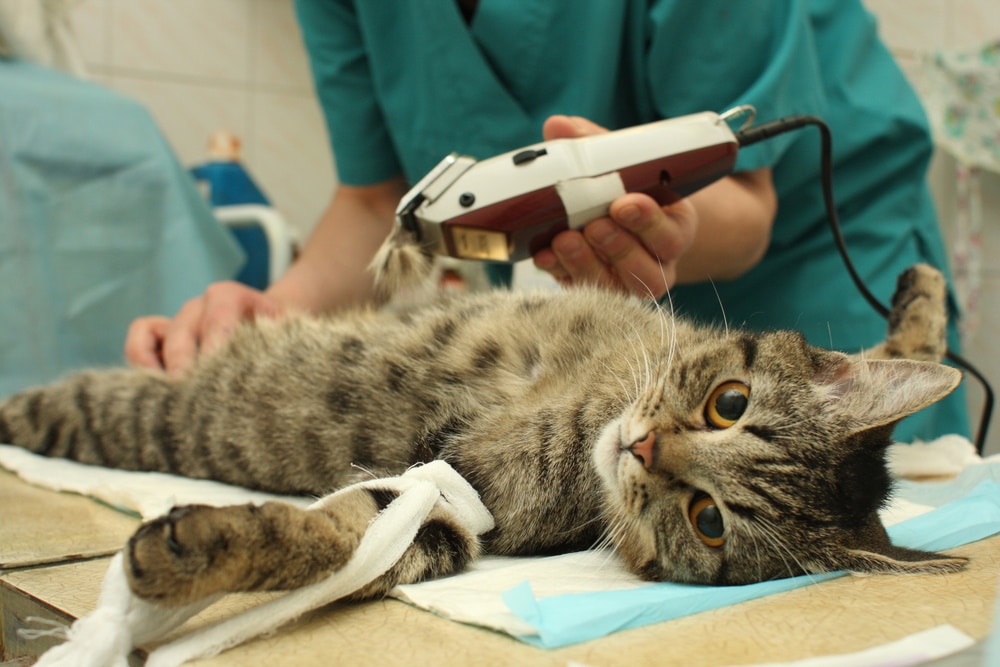
| Resources: | A licensed veterinarian |
Though many people assume the term “neutering” is only something done in males, it is not a sex-specific procedure in veterinary literature. This procedure is also referred to as a spay surgery (for females) or a castration surgery (for males). It is a short procedure which removes the reproductive organs of the animal: the ovaries and uterus in a female, and the testicles in males. Other terms include an ovariohysterectomy (in females) or an orchiectomy (in males).
Having your cat neutered is an effective way to keep them from wanting to get outside and look for mates. If they are not trying to reproduce, they won’t feel an urge to get outside and sniff out possible partners. Instead, they’ll be more inclined to continue snuggling on the couch with you.
Neutering your pet does more than curb escaping behavior; it also offers other benefits, such as lower incidences of certain cancers in both sexes. In addition, it can help curb other unwanted behaviors in some cases too, such as spraying or yowling.
2. Make the Indoors Interesting
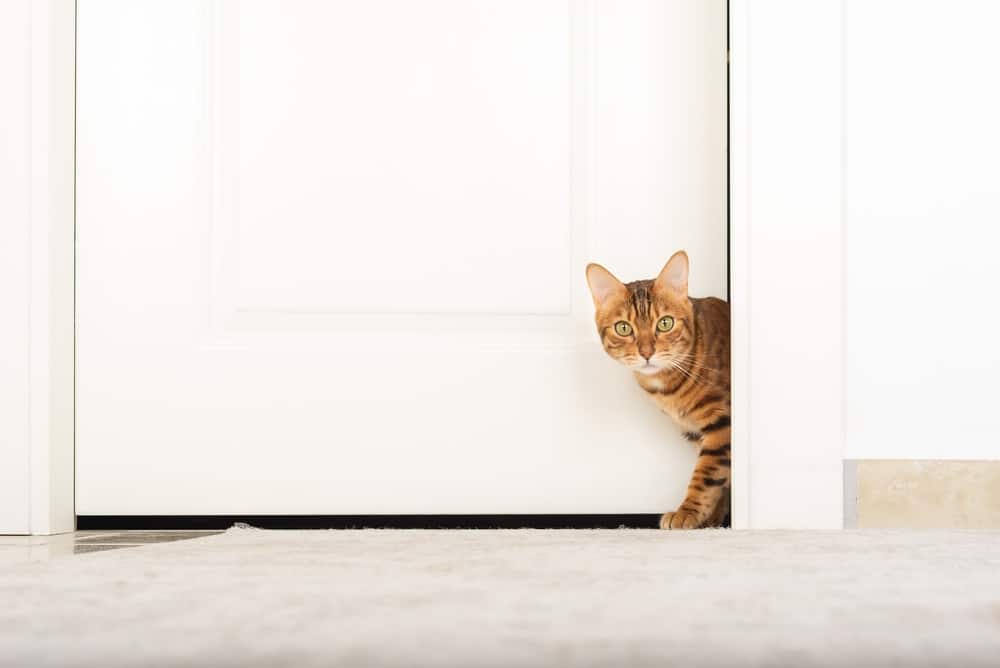
| Resources: | Your creativity |
Contrary to popular belief, cats aren’t inherently lazy animals that just sleep and eat all the time. Cats are inquisitive and explorative by nature. If your cat’s indoor environment is boring, they might simply be tempted to explore everytime the door opens because the outdoors might just seem more appealing.
Of course, our pet cats do not know that roaming has its risks as well. After all, they can get lost, injured, or contract an illness if they go outside, and that’s not even factoring in the weather they have to deal with. Therefore, keeping the indoors enticing and interesting for your cat with multiple scratching posts, toys, mazes, puzzles, and of course, interactions with your pet can make your cat more interested in staying indoors at times.
3. Leash Train Your Cat
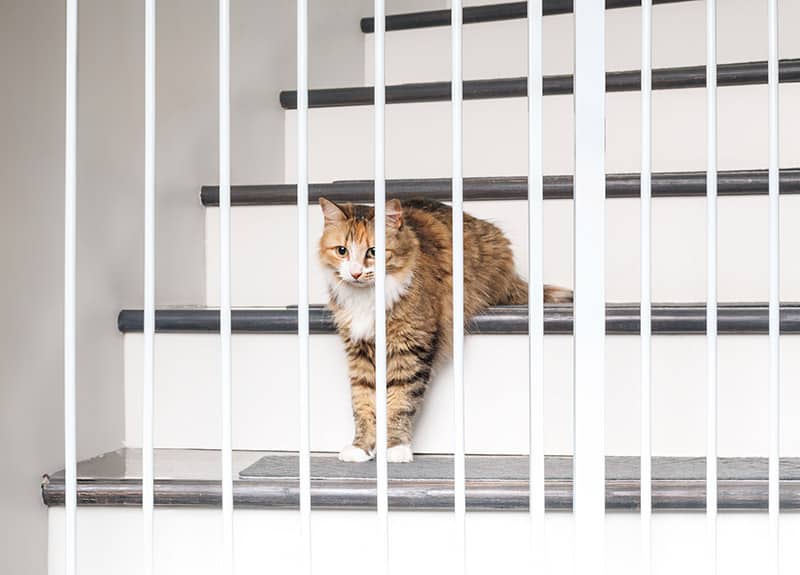
| Resources: | A cat harness & leash |
Though unsupervised roaming can be dangerous for your cat (and the local fauna), it is important to realize that this doesn’t necessarily mean you should deprive your cat of the enrichment associated with roaming unsupervised. A cat that bolts out the door is definitely undesired. However, leash training your cat is an approach that allows you to take your cat outdoors safely.
Leash training may also curb bolting behavior; if a cat learns that they’re frequently taken outdoors on a leash, they will likely not be interested in escaping all the time.
4. Utilize a Catio
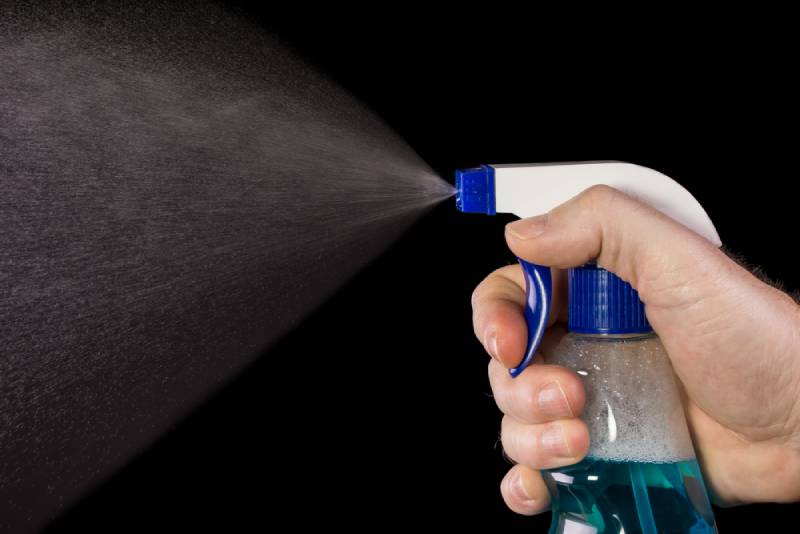
| Resources: | Catio (DIY, custom, or ready-made) |
Another way to prevent your cat from bolting out the door is to offer them the same exposure to the outside by placing them in a cat patio, also known as a “catio.” This allows your cat to enjoy the outdoors while also offering them safety in your absence.
With a catio, your cat can curb their curiosity of the outdoors without the need to bolting out the door everytime they see you open it.
5. Create Distractions
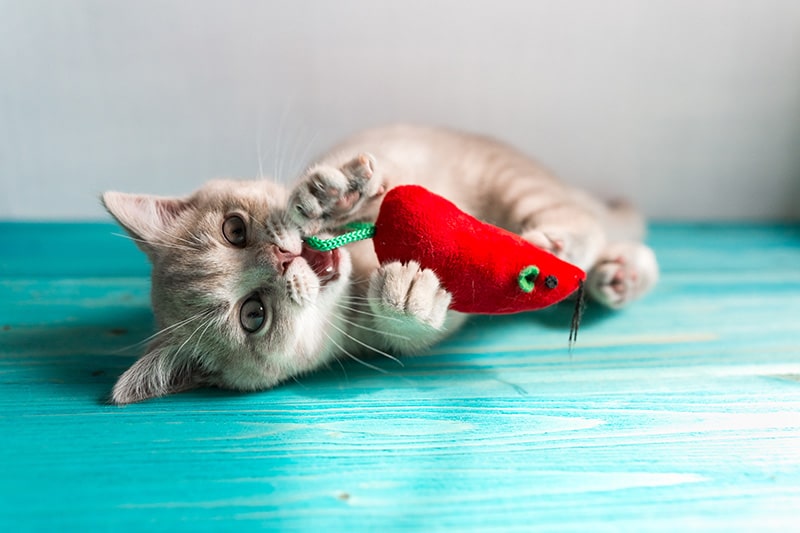
If you want to get out of your front door or through one in your home that you don’t want your cat going through, you can try distracting them from the doorway right before you make your personal escape. The distraction must last longer than just a couple of seconds, so throwing a toy in the opposite direction likely will not work.
However, certain toys can provide enough distraction. For example, a puzzle toy will keep your kitty busy for several minutes, if not longer, while you make your way through the door that you don’t want them getting through. Depending on your cat’s preference, you can also place a cardboard box in the living room, or even fill a toilet paper core with treats, tape the ends, and toss it out for fun and games.
Another alternative is to offer your cat their next meal before you are about to leave. A cat that’s busy eating might not notice you making your way out the door. However, this should only be done when you know you’ll be back before the leftovers begin to spoil.
What to Do if Your Cat Does Get Outside

If your cat lives strictly or predominantly indoors or if you must keep your cat indoors for a period of time, you should have a plan of what to do if they end up getting outside despite your efforts to keep them in. Here are tips and techniques to consider:
- If your cat is microchipped, call the Humane Society and Animal Control Services in your area to find out if they have taken in any recent cats that are microchipped with information that matches yours. Even in the worst case, they’ll be more likely to recognize your name if they end up finding your cat after you call, so hopefully, you’ll get a call sooner rather than later.
- Make fliers that include your cat’s picture, name, coat characteristics, sex, and age, along with your own contact information, and then post them all over your community. Give them to neighbors and friends to pass out. Hand them out at farmer’s markets and other local events. With any luck, someone will spot your kitty and help with reunification.
- Talk to your neighbors. They are the most likely to see your cat if they haven’t gone too far and gotten lost. If they know to be on the lookout, there is a better chance that they will call you and let you know of your pet’s whereabouts as soon as possible.
- Take a long walk every day, and call your cat’s name periodically throughout the excursion. Bring treats along with you and even a mesh carrier if you have one. If you catch a glimpse of your cat but cannot get to them, knock on nearby doors, and start a campaign to capture your cat so they can get back home where they belong.
- Leave your cat’s litter box or favorite toys outside in an area you can monitor. Their scent might lure your cat back to your home.
Conclusion
Even the happiest indoor cat may still try to run out the door when given the chance. It’s more of an instinctive behavior than a definite sign your cat is not happy at home. However, most cat owners feel discouraged by their cats desperately trying to escape.
That’s why it is important to take the proper precautions to keep your cat secure in your home and to do necessary procedures (such as microchipping or sterilization) to reduce the urge to escape.
Featured Image Credit: Andriy Blokhin, Shutterstock

